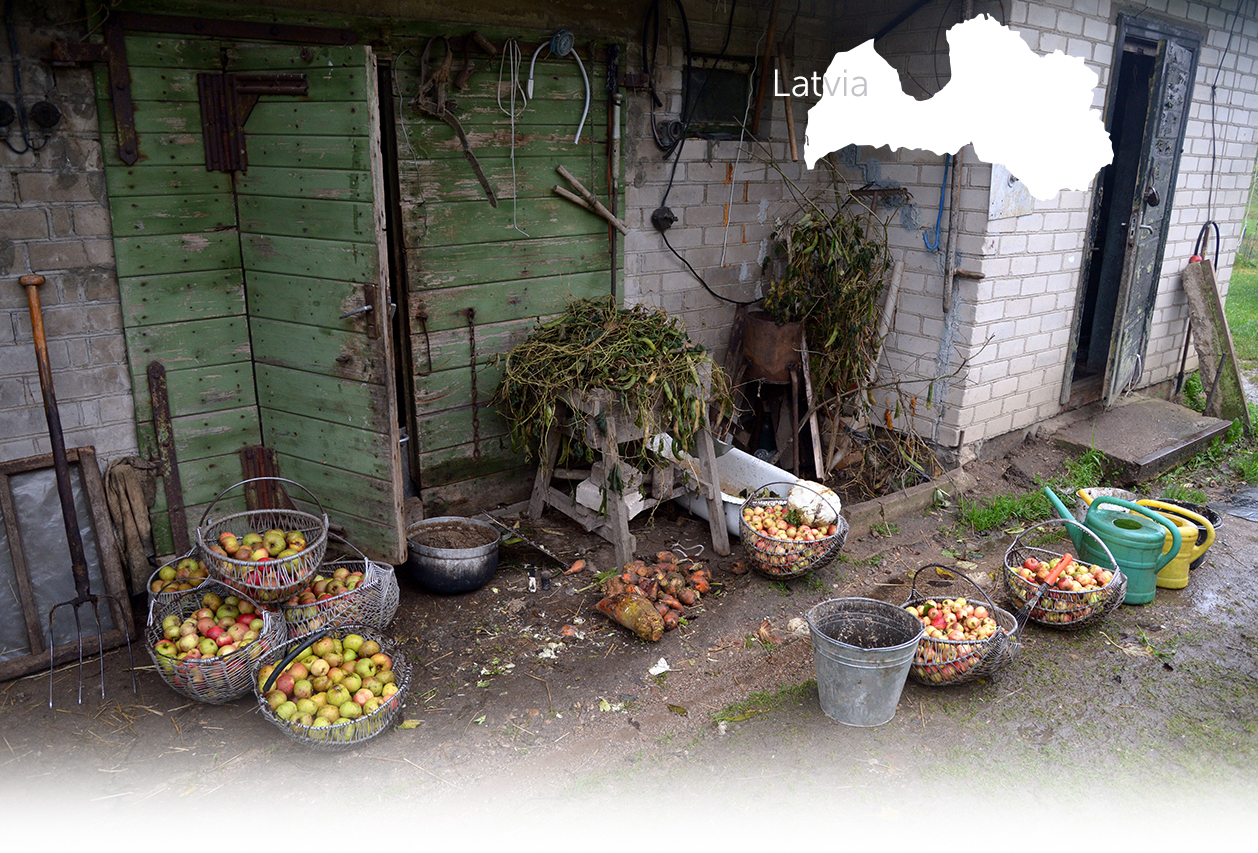

1 Execution site(s)
Jānis Z., born in 1934: “The Jews were taken from the Popervāle camp to build a railroad line and an airfield. On the orders of the Germans, they had to destroy my grandfather’s house because it was in the area and its materials could be reused at another construction site. Later, some of the Jews were transferred from Popervāle to the Kurbes forest 10 km (6 miles) away. There, they were housed in green tents. The Germans, on the other hand, were housed in the wooden barracks in Popervāle. I remember seeing trucks coming from Popervāle towards this forest for about a week. Depending on the officer present, the Jews could get out of the trucks and ask for food in the nearby houses. On very rare occasions some even came to my house. The Jews were dressed in civilian clothes, but wore a star. They were not killed in the camp, but were taken somewhere near Dundaga and shot. I did not see any Jews again for the rest of the war.“ (Witness n°95LV, interviewed in Lube, on September 10, 2021)
Dundaga is a small town located 122 km (76 miles) northwest of Riga, in the Kurzeme region of Latvia. Before the war, there were 20 Jewish residents in Dundaga, making up 4% of the total population. In the summer of 1941, under the terms of the German-Soviet Pact, the USSR took possession of the Baltic States and the Red Army entered Dundaga.
On June 22, 1941, the German armies and their allies began their invasion of the USSR, marking the beginning of Operation Barbarossa. By the end of June, Dundaga was occupied. As soon as the occupation began, the German authorities created a local auxiliary militia composed of Latvians. In early July, one of its members shot a Jew in the town. Then, on July 19, 1941, the German authorities ordered the arrest of all Jews in the Ventspils district, of which Dundaga was a part. All of the local Jews, about 20 people, were subsequently deported to Ventspils, located 50 km (31 miles) to the west. There, they were shot along with other local Jews in the forest on the outskirts of the town. At the beginning of September 1941, the Dundaga region became part of the Reichskommissariat Ostland, an administrative entity of the Reich that included the territories of the Baltic States and part of Belarus. The former castle of Dundaga served as the headquarters of the SS stationed there. In March 1943, the Germans built the Kaiserwald concentration camp near Riga. In early summer 1943, the large ghettos in Riga, Daugavpils and Liepaja were liquidated. The remaining Jews were sent to the Kaiserwald camp as well as to other secondary camps scattered around the region. Five forced labor camps were subsequently established near Dundaga, including Dondangen I, Dondangen II, and Popervāle. In 1944, more than 6,000 Jews and about 1,000 POWs were confined there, under the guard of several SS units. One of the camps, Popervāle, was divided into two. On one side, the men had to work on maintaining the infrastructure and building barracks. In particular, they were involved in the construction of a railroad track to Mazirbe, 19 km (12 miles) north of Dundaga. On the other, women had to cut wood and work the land. Men and women also worked on draining the marshes. This work was to allow for the establishment of German colonies. The Jewish prisoners all had to wear a distinctive yellow sign and lived in tents made of poor quality materials. The living conditions in these camps were terrible and several dozen prisoners died every day. Some of those who worked on the railroad were victims of summary executions near the Čiekuri farm, located 5 km (3 miles) north of Dundaga. Some of the bodies were buried there, while others were thrown into the sea near Mazirbe. In all, more than 1,200 Jews died in the five camps in the Dundaga area. The region was liberated in May 1945, when Nazi Germany surrendered.
Do you have additional information regarding a village that you would like to share with Yahad ?
Please contact us at contact@yahadinunum.org
or by calling Yahad – In Unum at +33 (0) 1 53 20 13 17